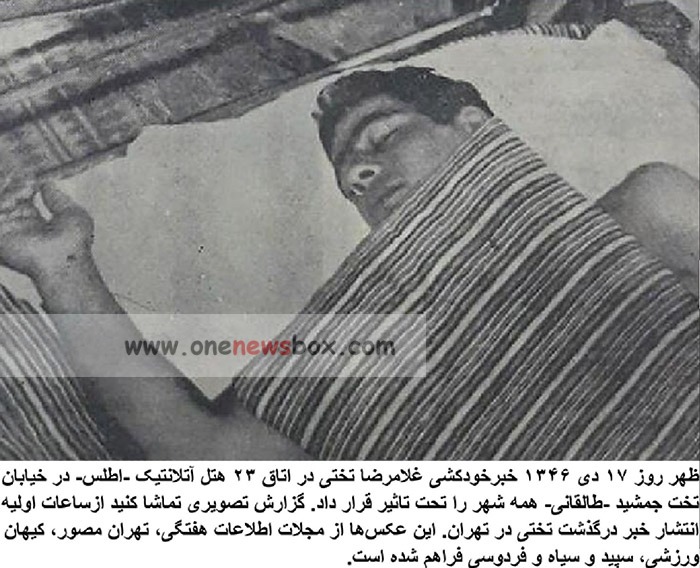On the afternoon of January 7, 1967, the news of Gholamreza Takhti’s death shook Tehran to its core. Found lifeless in Room 23 of the Atlantic Hotel (now Atlas Hotel) on Takht Jamshid (Taleghani) Street, the announcement of the legendary wrestler’s suicide was met with disbelief and sorrow across the nation. Takhti, a celebrated national hero and symbol of resilience, had seemingly succumbed to despair. His demise became the subject of intense speculation, sparking debates that persist to this day.
The Immediate News
Mohammad Belori, a police officer stationed at the Takht Jamshid precinct, was among the first to learn about Takhti’s death. He described his reaction: “I couldn’t believe that a national hero would be so disappointed in life that he would commit suicide.” However, the circumstances surrounding Takhti’s death quickly became controversial. Some suspected foul play, attributing his death to SAVAK, the Shah’s notorious secret police. Such accusations arose from Takhti’s popularity and his refusal to align himself with the imperial regime. Nonetheless, evidence—including a handwritten will and pills discovered near his body—seemed to corroborate the narrative of suicide.
Strains in Takhti’s Personal Life
Takhti’s personal life was far from harmonious, particularly his marriage to Shahla Tavakoli, who came from a more affluent background. According to Belori, Shahla frequently clashed with Takhti and reportedly insulted his mother and sisters. Takhti, deeply attached to his family, found such disputes agonizing. A diary entry revealed that on the day before his death, Shahla had a heated argument with one of Takhti’s sisters, during which she accused him of lacking manhood. This incident devastated Takhti, leading him to leave their home for the hotel where he would ultimately end his life.

